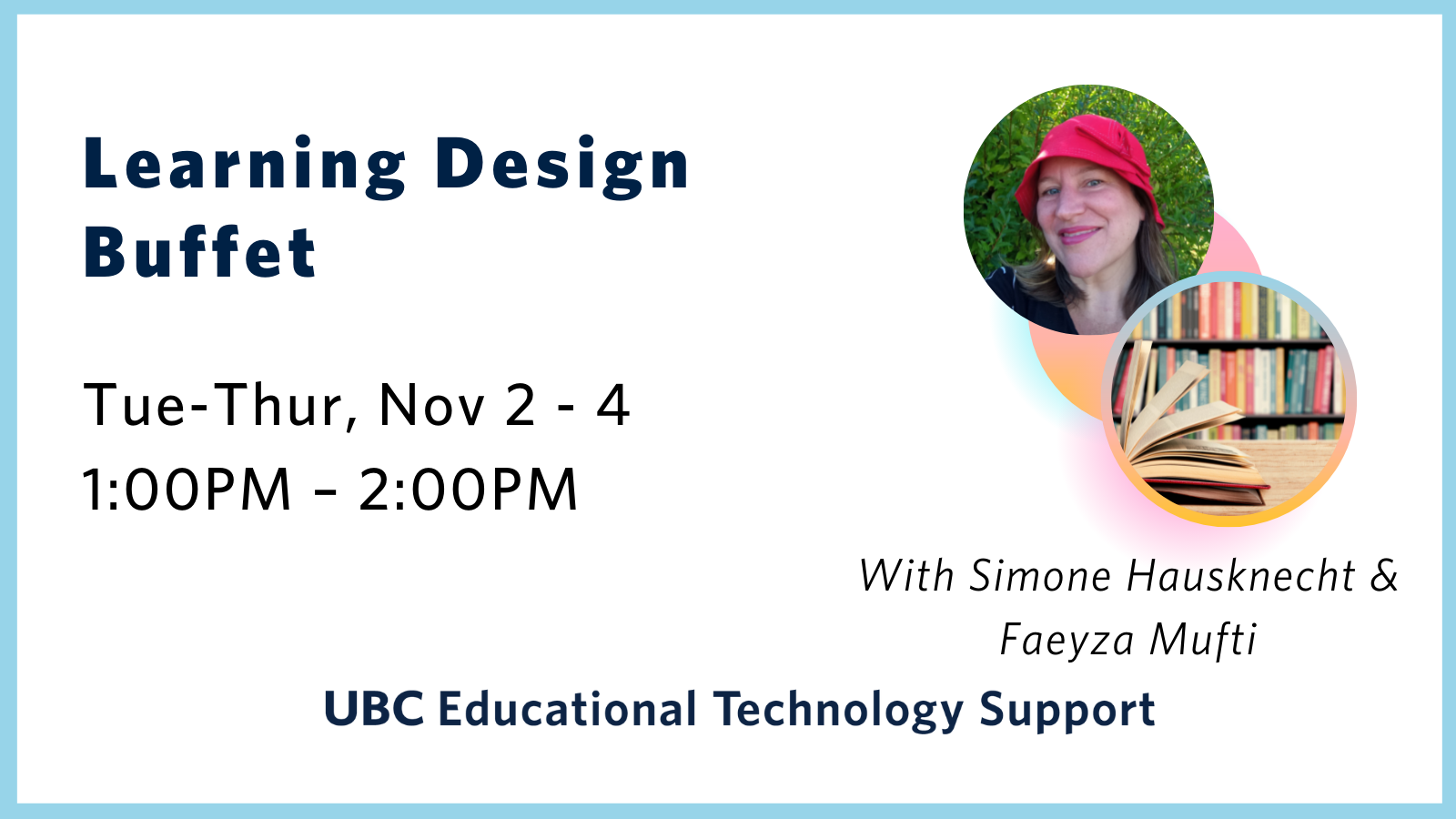
Viewpoints Discussion Series
Teaching with Care
Panelists:
Dr. Roberta Borgen (Neault), Adjunct Professor, ECPS
Dr. Surita Jhangiani, Assistant Professor of Teaching, ECPS
Tonje M. Molyneux, M.Ed., M.A.
Moderators:
Helen DeWaard, Learning Designer, ETS
Simone Hausknecht, Learning Designer, ETS
Join us for our fifth event in the Viewpoints discussion series.
“To teach in a manner that respects and cares for the souls of our students is essential if we are to provide the necessary conditions where learning can most deeply and intimately begin.” ~ Bell Hooks (Teaching to Transgress, 1994, p. 13)
Do we need pedagogies and practices of caring in our teaching and learning environments? Has the pandemic heightened our need for care as we design learning with the integration of technologies?
Teaching with care requires attention and empathy (Noddings, 2012). Designing and teaching with care has become ever more pressing in the past few years, as we have increasingly used technology as a result of the COVID-19 pandemic (Grey, 2020). An ethic of care is relatively new (Noddings, 1988; Held, 2006), yet teaching with care pre-dates the pandemic. Teaching with care may be perceived as a form of activism and resistance (Bali, 2015; Hooks, 1994; Noddings, 2021) – a Davidian effort against the Goliath of the higher educational monetary, accountability machine and what some educators see as a dehumanizing presence of educational technology (France, 2020). As a result of the pandemic and global crises, there is a heightened sense of urgency in designing caring communities of learners in our courses, as we model a care for the environment, care for equity and social justice, and care for mental health and well-being.
Is caring part of a moral and ethical teaching practice? Does the integration of technology interfere or enhance our ability to teach with care? Can we balance a teaching practice that is philosophically grounded in morality and an ethic of care, with the current push for accountability and rigor in teaching and learning?
Bring your viewpoints to this interactive session! We encourage you to attend and take part in the discussion, or else come simply as a silent spectator and watch the conversation unfold.
Visit the topic page for this session on the Viewpoints website!
Respectful Environment
The Faculty of Education and UBC seek to foster an environment in which respect, civility, diversity, opportunity and inclusion are valued. We ask that all participants adhere to the principles outlined in the UBC Respectful Environment Statement and UBC’s Resources for Respectful Debate.








